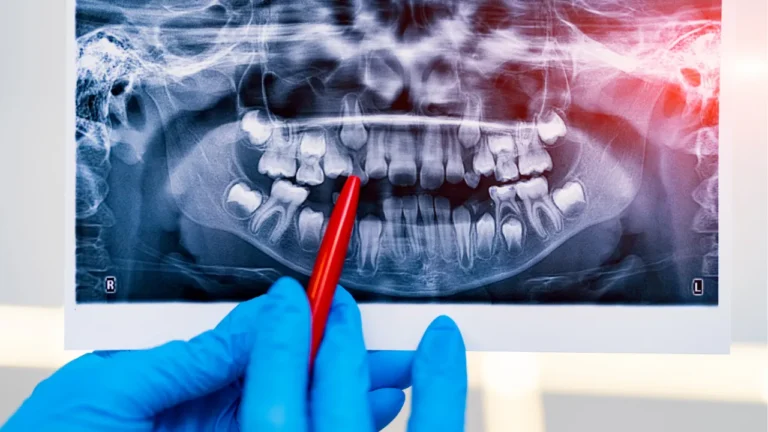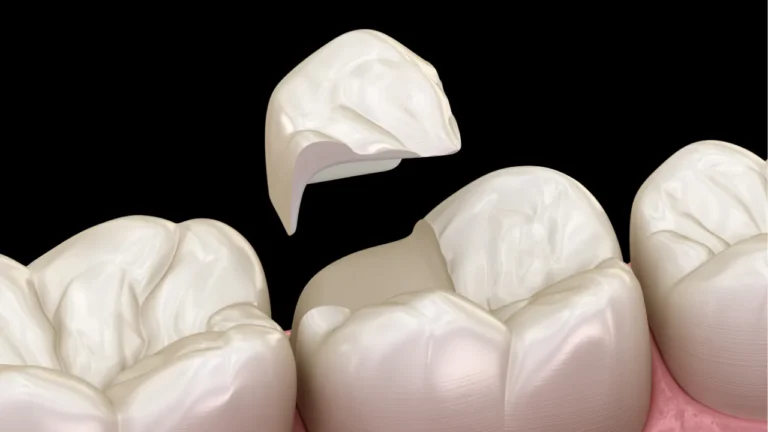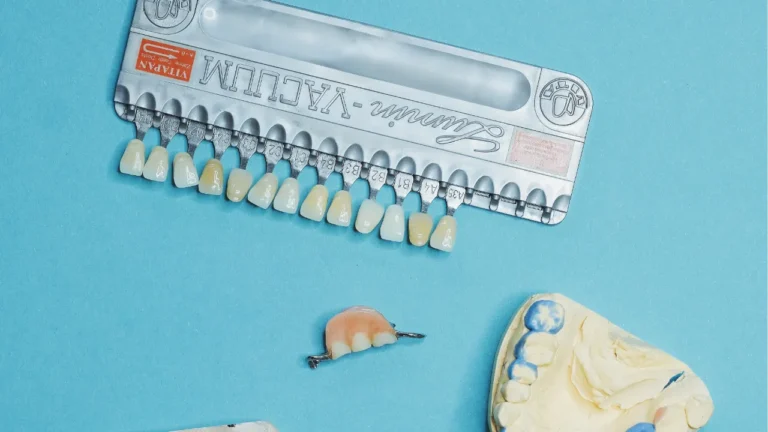A properly performed root canal procedure typically has no long-term adverse effects. In fact, it’s designed to relieve pain and save the tooth from extraction.
However, like any dental procedure, there are potential complications that may arise over time, such as reinfection or a fractured tooth.
Understanding these risks and maintaining regular dental check-ups is essential to monitor the health of your treated tooth.
Quick Summary
- Root canals are safe, effective, and designed to save natural teeth.
- Potential long-term issues include reinfection, tooth fracture, root resorption, and treatment failure.
- Factors like oral hygiene, tooth location, and dentist expertise influence outcomes.
- Preventive steps: maintain good oral care, attend dental visits, avoid hard foods, and consider a crown for extra protection.
Long-Term Effects of Root Canal
1. Reinfection
One of the most common long-term complications is reinfection. This can occur if the tooth’s inner structure isn’t thoroughly cleaned or if bacteria re-enter through cracks or leaking fillings. Signs of reinfection include:
- Persistent pain or discomfort.
- Swelling or tenderness in the gums.
- Development of a gum abscess.
To prevent reinfection, it’s crucial to maintain excellent oral hygiene, attend regular dental check-ups, and address any signs of infection promptly.
If reinfection does occur, your dentist may recommend retreatment, an apicoectomy (surgical root canal), or, in severe cases, extraction of the tooth.
2. Tooth Fracture
After a root canal, the tooth can become more fragile and prone to fractures due to the removal of its internal tissue. This is especially true for molars, which endure significant chewing forces.
To protect the tooth, your dentist may recommend placing a dental crown to provide extra strength and stability.
If a fracture occurs, treatment options include:
- Dental bonding for minor cracks.
- Dental crowns for added support.
- Extraction and replacement with a dental implant if the fracture is severe.
3. Root Resorption
Although rare, root resorption is a potential complication where the body’s immune system mistakenly begins to break down the tooth’s root structure. Symptoms of root resorption may include:
- Tooth sensitivity.
- Discoloration.
- Tooth mobility or looseness.
Regular dental check-ups and X-rays can help detect root resorption early.
Treatment may involve retreatment of the root canal or extraction of the tooth, depending on the severity of the condition.
4. Treatment Failure
While root canals have a high success rate, treatment failure can sometimes occur due to factors such as incomplete removal of infected tissue, missed canals, or undetected cracks. Signs of a failed root canal include:
- Persistent pain or swelling.
- Continued infection or abscess formation.
If a root canal fails, retreatment or an apicoectomy may be necessary. In certain cases, tooth extraction may be the best option to prevent further complications.
Factors Affecting Long-Term Outcomes
Several factors can influence the long-term success of a root canal, including:
- Tooth Location: Front teeth generally have a higher success rate due to their single root structure, while molars with multiple roots are more complex to treat.
- Oral Hygiene: Maintaining excellent oral hygiene by brushing, flossing, and attending regular dental check-ups is crucial in preventing complications.
- Dentist’s Skill: Choosing an experienced and qualified dentist ensures the best possible outcome for your root canal treatment.
How to Minimize Long-Term Complications
Taking the following steps can help minimize the risk of long-term complications:
- Practice Good Oral Hygiene: Brush twice a day, floss daily, and use an antimicrobial mouthwash to maintain a clean and healthy mouth.
- Attend Regular Dental Visits: Regular check-ups allow your dentist to monitor the treated tooth for any signs of complications and provide timely intervention if needed.
- Avoid Chewing Hard Foods: Biting down on hard items like ice or nuts can increase the risk of tooth fractures, especially on a weakened tooth.
- Consider a Dental Crown: If recommended by your dentist, consider getting a dental crown for additional support and protection, particularly for molars.
Take away
Root canals are valuable dental procedures that can save your natural teeth from extraction.
While they are generally safe and effective, it’s essential to be aware of the potential long-term effects such as reinfection, fractures, resorption, and treatment failure.
By practicing good oral hygiene, attending regular dental check-ups, and promptly addressing any signs of complications, you can significantly reduce the risk of experiencing these long-term effects.
At Every Smile Dentistry, our experienced dentists are committed to providing high-quality root canal treatments and comprehensive dental care.







